Noami Jourdain grew up in Uashat, a small community of 1,500 Innu in the Sept-Rivières regional county municipality in the Côte-Nord region. "I am the baby in a family of seven, along with my twin brother." Passionate about travel and literature, the young 28-year-old has just completed the training program Protection and Development of Wildlife Habitats at the vocational school CFP du Grand-Fjord, pavillon La Baie, in the Saguenay region. At the end of her training, which she describes as "magnificent," she did an internship at the Agence Mamu Innu Kakussesht (AMIK), which focused on black salmon and eelgrass, in Sept-Îles.
Learning Years
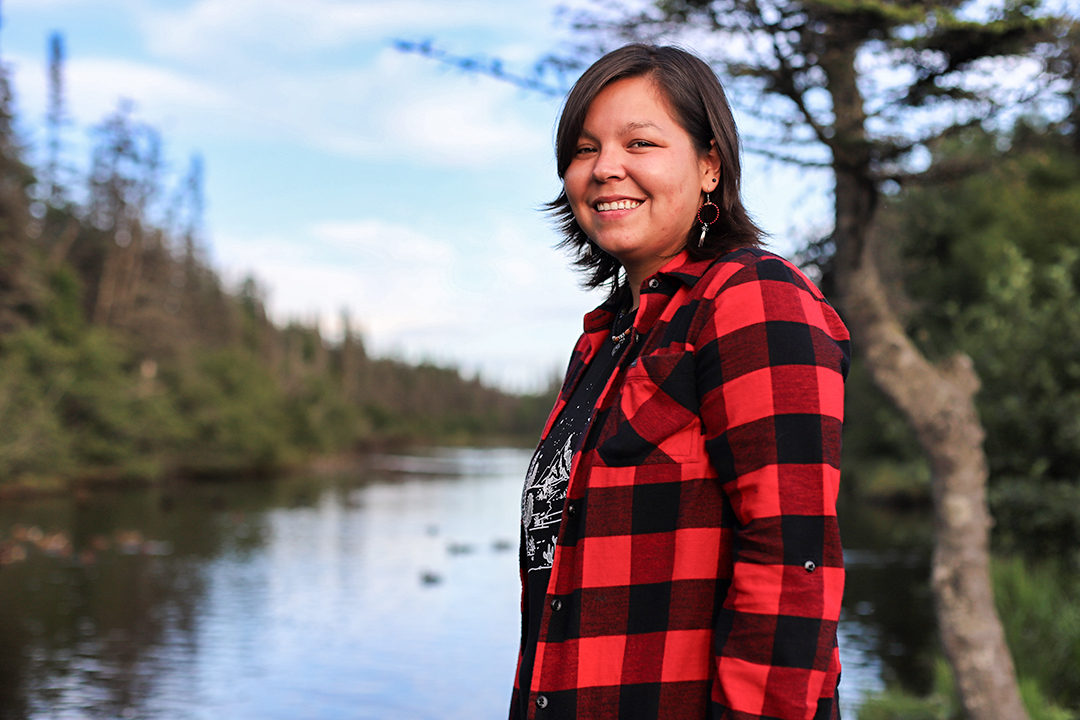 Noami Jourdain grew up in Uashat, a small community of 1,500 Innu in the Côte-Nord region.
Noami Jourdain grew up in Uashat, a small community of 1,500 Innu in the Côte-Nord region.At 17, after graduating high school, Noami pursued her passion for literature by enrolling in Languages, Literature, and Communication. After her college diploma (DCS), she fulfilled her childhood dream of immersion travel and lived in Los Angeles, with its beaches and charm, as part of the Education First program. When she returned, she tried different university courses but could not find a good fit. "I felt a little lost in university. I had trouble sitting, being passive, and just listening. In general, Indigenous people have a hard time with theory; that is not how we pass on knowledge and techniques. We learn by observing. For example, my mother taught me how to cook by showing me what she was doing, without needing to discuss."
In the years that followed, the young Innu worked in customer service, a field in which she excelled. She saved up and took another immersion trip, this time to Australia, where she stayed for four months, first working and then traveling, as part of the Global Work & Travel program.
Getting to Know Oneself
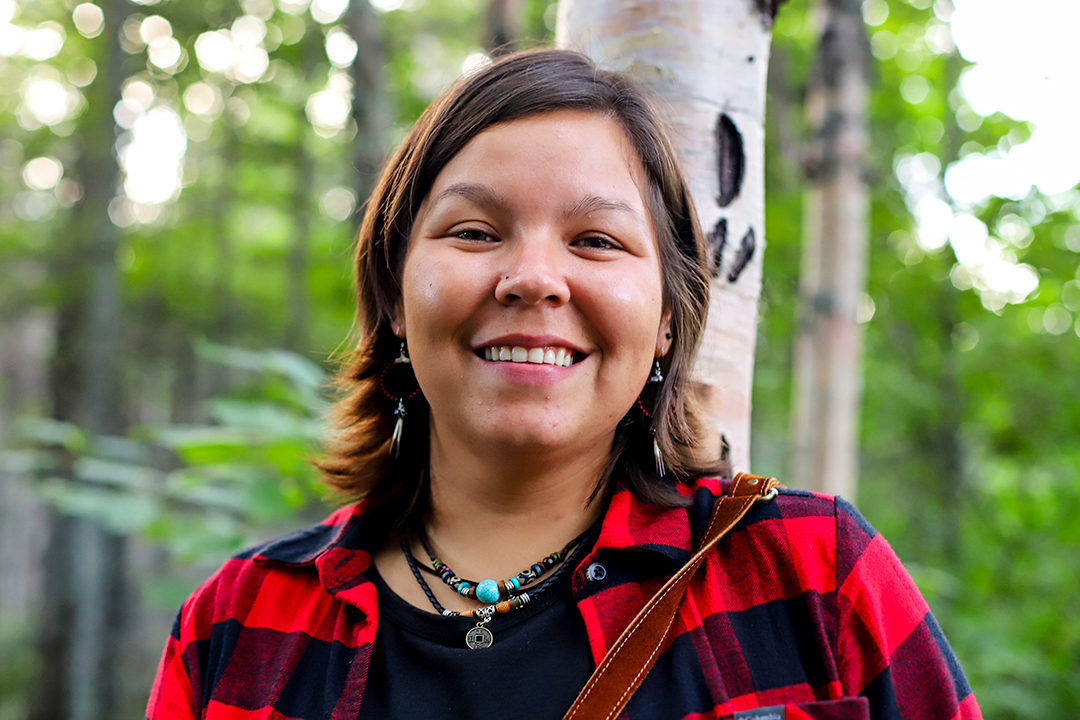 Following a DCS in literature, she tried out a few university courses, but none managed to keep her interest.
Following a DCS in literature, she tried out a few university courses, but none managed to keep her interest. When the COVID-19 pandemic hit Canada in the summer of 2020, Noami was about to backpack around Europe. "This forced break led me to think. I asked myself where I felt the happiest, and the answer was obvious to me: at my cottage, where I feel true inner peace."
"At a certain point, I said to myself, 'Go for it, go get the knowledge you lack. Make your own way.' That's what made me want to enroll in the DVS program in Protection and Development of Wildlife Habitats."
Unlike her parents, who have Ancestral Knowledge of the forest, Noami feels that she still has a lot to learn, and the opportunities to be in the woods with them are few and far between. "I learned to fish brook trout with my father on our ancestral land in Grand lac Germain, but the forest is very vast. Between my parents and I, the transfer of Ancestral Knowledge has not been as intense as it has been for previous generations," she says.
She then decided to enroll in the Protection and Development of Wildlife Habitats program. "At a certain point, I said to myself, 'Go for it, go get the knowledge you lack. Make your own way.' That's what made me want to enroll in the program, I wanted to develop my knowledge of the forest, gain autonomy and make it my profession."
Return to School
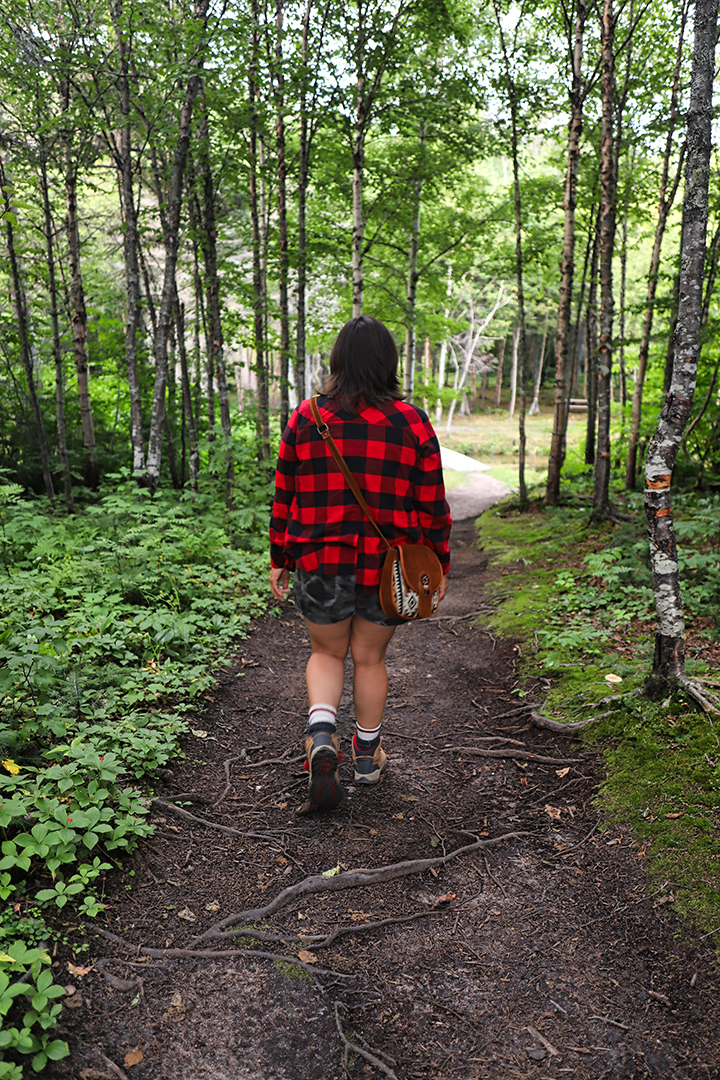
For her training program, Noami had to leave her community and move into an apartment in Saguenay. She admits that she is very close to her family and friends and was a bit apprehensive about this separation. Fortunately, her class group and teachers more than made up for the homesickness she felt. "We were such a great group! People who share my love of nature and with similar values. We encouraged each other throughout our training. I made friends for life! The teachers were passionate.
"Every morning, I would wake up excited to go to class. We tried everything and learned so much: moving in the forest, survival, camping, hiking, prevention, and awareness. I liked the area and the hunting and fishing activities you can do there, and the people of Saguenay are welcoming." In addition to the financial assistance provided by the band council, Noami mentions the help and support she received from her parents and family. "They were incredibly supportive of this adventure. I owe them a lot."
"I want to develop my skills in traditional cooking, as it is useful in the woods. I want to develop projects with youth in my community."
Exciting Projects
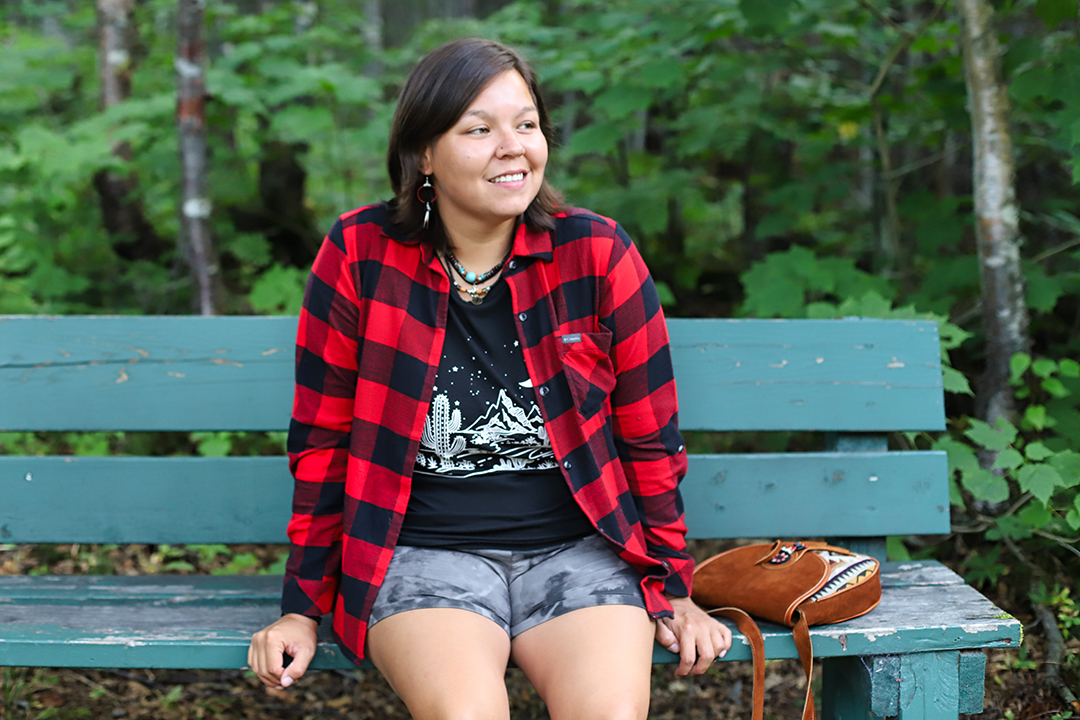 Noami left her community for Saguenay, where she was welcomed by teachers and students who shared the same passion for wildlife.
Noami left her community for Saguenay, where she was welcomed by teachers and students who shared the same passion for wildlife. To complete her training, Noami interned at AMIK, where she became interested in black salmon. At the end of her training, she was hired by this organization that supports Innu communities in the sustainable development of the fishing industry.
In the next few years, she wishes to follow her instincts and continue to learn as she goes along. "I don't like routine, and I am interested in many things. For example, I want to develop my skills in traditional cooking, as it is useful in the woods. I want to develop projects with youth in my community. I also want to continue to travel, spend quality time with Asher, my Labrador, and take time to go to my cottage and relax."
Consult other videos related to the trade and training under the Useful links and videos tab on the Protection and Development of Wildlife Habitats program page.
Profession: Conservation Officer
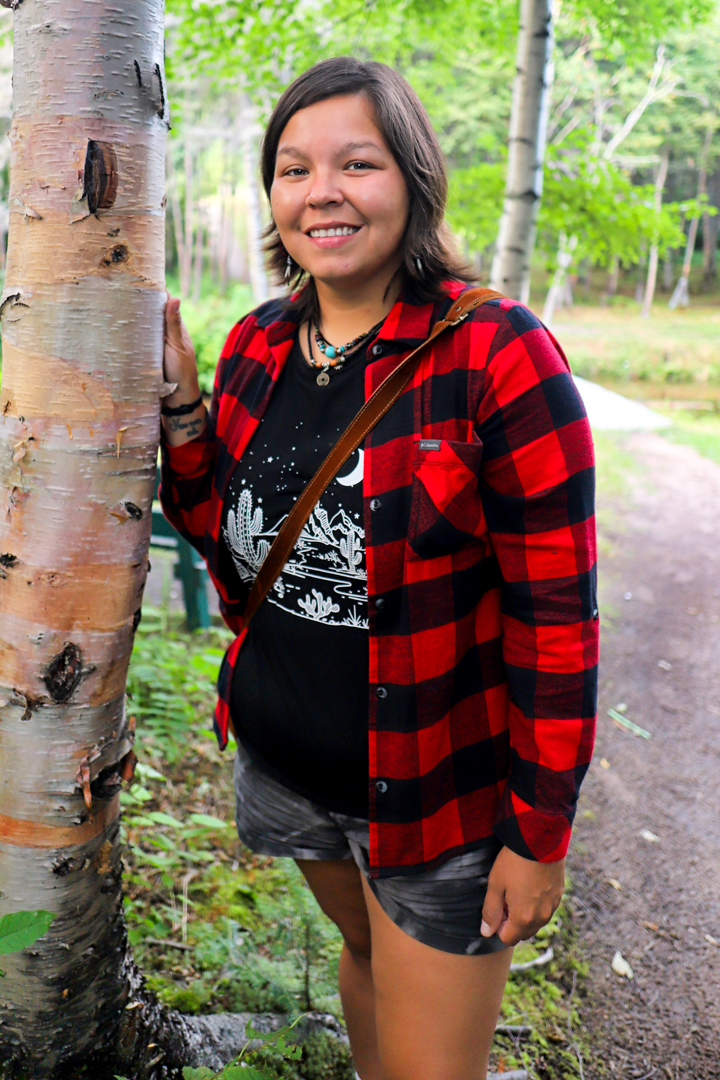 To complete her training, Noami interned at AMIK, where she became interested in black salmon. Once her internship was completed, she got a job there.
To complete her training, Noami interned at AMIK, where she became interested in black salmon. Once her internship was completed, she got a job there.Conservation officers patrol the forest. They enforce hunting and fishing regulations on a territory, assist visitors and participate in the management of wildlife areas. This 1,320-hour training program leading to a Diploma of Vocational Studies (DVS) is offered in seven training centers in Québec.
"Thanks to my training in the protection and development of wildlife habitats, I now have a different perspective when I look at the forest."
As part of their duties, officers may have to guide hunters and fishermen or assist biologists during inventories in natural environments. This is a stimulating job for those who enjoy working in the great outdoors. A job as a conservation officer requires being in shape and being resourceful, autonomous, and responsible.
